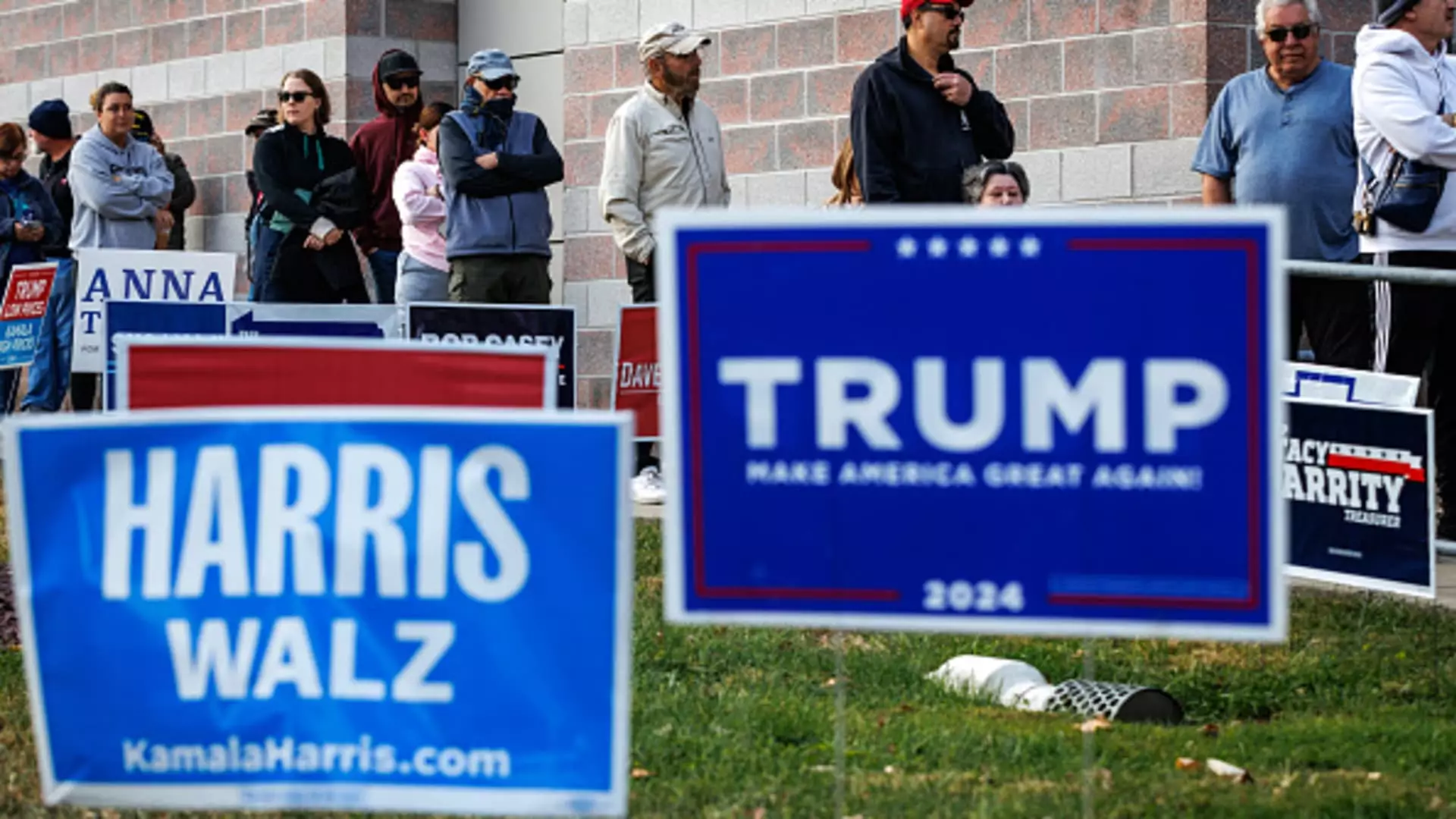The political landscape in the United States, particularly regarding older voters, is significantly influenced by financial stability and perceived economic security. Recent studies suggest that seniors, aged 50 and above, harbor apprehensions about their current living conditions compared to four years prior. A comprehensive poll released by AARP illustrates a growing sentiment of dissatisfaction among this demographic, underlined by emerging trends that may reflect wider concerns within the national narrative.
Declining Confidence in Economic Conditions
The findings from AARP’s post-election poll reveal that nearly half, about 47%, of older voters perceive their financial situation as diminished since the previous electoral cycle. This sentiment is especially prevalent among swing voters aged 50 and up, where a striking 55% report worsening conditions. Such statistics highlight a pronounced decline in economic confidence among older Americans, suggesting that their political preferences are increasingly shaped by financial concerns rather than party allegiance alone.
In competitive Congressional races, these voters demonstrated support for Republican candidates, as Trump secured a narrow victory by a mere two percentage points in this category. The analysis underscores the pivotal role that voters aged 50 and over play in shaping electoral outcomes, often swaying key races in favor of financial conservatism.
The Burden of Financial Safety
Delving deeper into the financial anxieties faced by older Americans, a previous AARP survey conducted in June exhibited that a significant 62% express worry about their personal financial circumstances. Inflation emerges as a primary source of these concerns, with food costs, healthcare, and housing topping the list of financial burdens. In this environment, personal economic stability has become a critical voting incentive for this age group, influencing engagement rates at the polls.
The importance of these financial factors cannot be overstated, particularly when 55% of older voters prioritize economic issues over other political discourse. This strong emphasis on financial stability offers insight into the motivations behind midterm voting patterns—showcasing a demographic increasingly wary of their financial future and eager to support candidates who promise economic reassurance.
One noteworthy observation from AARP’s findings pertains to the ongoing debate surrounding Social Security. Traditionally, older voters have leaned Democratic regarding Social Security issues; however, the recent poll indicates a closeness in voter sentiment—Democrats only lead by two points in this critical area. Given that nearly 42% of seniors derive over half of their income from Social Security, proposals surrounding its sustainability are particularly salient for this voter bloc.
Experts emphasize the urgency of protecting Social Security, especially with projections indicating potential depletion of the trust fund by 2033. The tension between political promises and actionable plans to ensure the program’s longevity starkly illuminates a pressing political issue as parties vie for the allegiance of older voters in future elections.
Healthcare, alongside Social Security, remains an ongoing political issue that weighs heavily on the minds of voters over 50. Poll results indicate broad support for policies that allow Medicare to negotiate prescription drug prices, suggesting that older voters are cognizant of rising medical costs and advocate for more accessible healthcare solutions. With Medicare’s funding facing challenges similar to Social Security’s, the need for sustainable healthcare policies is becoming clear.
The looming threat of inflation not only impacts food and utilities but extends deeply into healthcare, reflecting a complex intersection of economics and health. A significant portion of older voters considers these issues as pivotal when shaping their political choices, demonstrating a trend that political leaders must recognize and address.
Navigating the concerns of older voters during elections requires an acute understanding of their priorities and fears. Candidates must tailor their platforms to address personal economic security, Social Security, and healthcare while also acknowledging the emotional implications of financial distress. The trend illustrating the declining confidence among this demographic serves as a call to action for both sides of the political aisle.
As the electorate evolves and economic conditions fluctuate, aligning political strategies with the genuine concerns of older voters is not merely advantageous but essential for electoral success. Understanding the nuances of their dissatisfaction could redefine political campaigns and encourage policies that offer real relief and security to an aging population.
Ultimately, the voice of older voters, shaped by financial realities and economic policies, is set to play a decisive role in forthcoming elections. Addressing their fears with actionable solutions may very well determine the political landscape for years to come.

